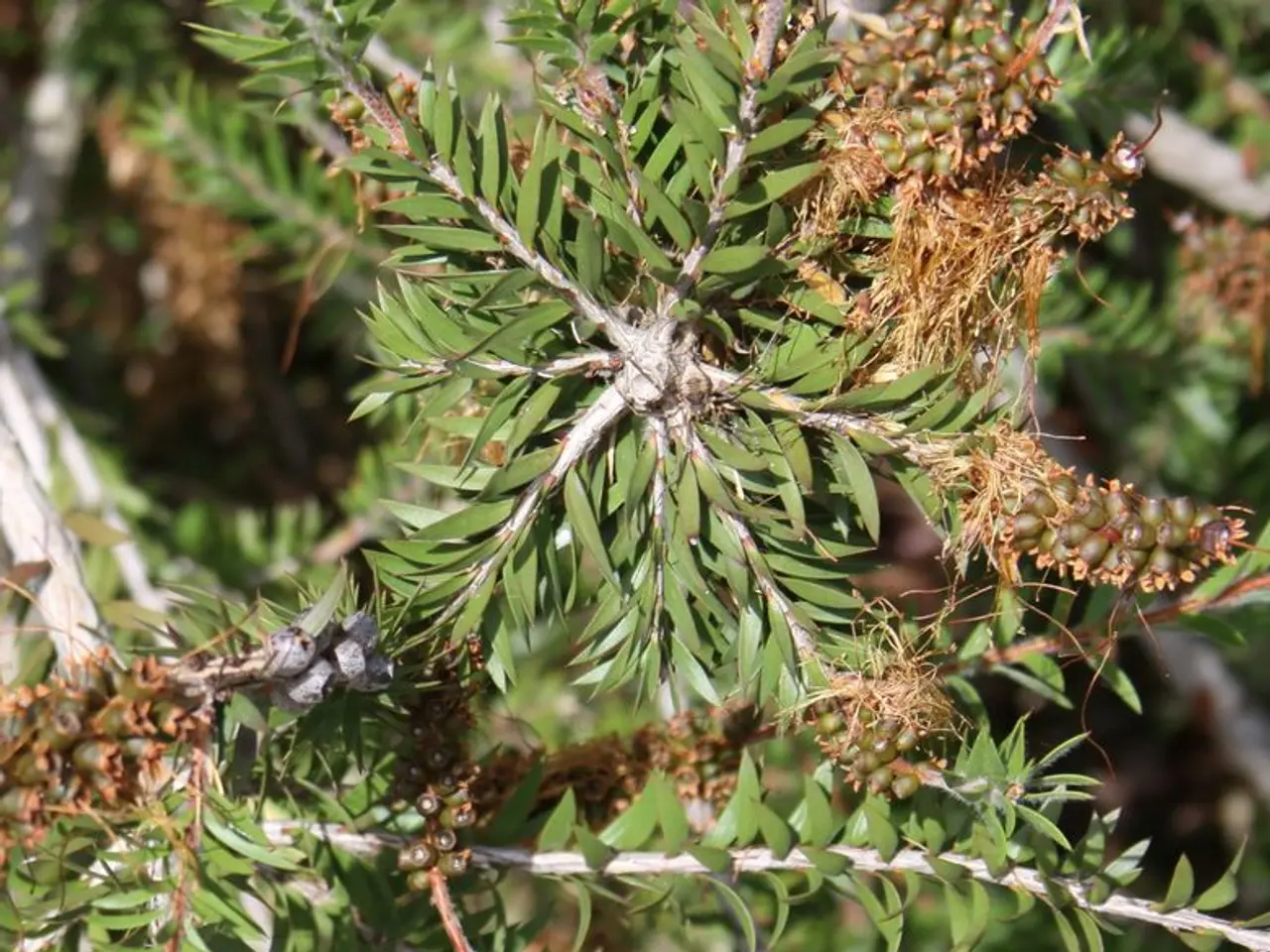Himalayan Ancient Peach Variety: Untapped Medicinal Riches to Explore
Wild Peach Tree in Himalayas: A Treasure Trove of Potential
The Prunus mira, a wild peach native to the Himalayan region, is a versatile and hardy tree with a rich history and numerous potential uses. Known locally for its food and medicinal properties, this tree could be a valuable asset for the region's economy and sustainable livelihoods.
Potential Uses
The Prunus mira tree produces fruit that is valued for food and potentially medicinal uses. It also serves as a genetic resource for cultivated peaches, offering traits like hardiness and disease resistance that benefit peach breeding programs.
Economic Benefits
Local communities can derive income by harvesting and selling wild or semi-cultivated Prunus mira fruits. The tree contributes to agro-biodiversity, supporting sustainable livelihoods through the diversification of crops. Its genetic traits could potentially enhance commercial peach cultivation, indirectly boosting agricultural productivity and profitability.
Threats
Despite its potential, the Prunus mira faces threats, including habitat loss due to deforestation, agricultural expansion, and urbanization. Overharvesting, climate change, limited awareness, and formal recognition also pose challenges.
Conservation and Sustainable Cultivation
To protect and cultivate Prunus mira sustainably, community-based conservation, agroforestry, and organic cultivation techniques are essential. This includes collecting germplasm for ex situ conservation, promoting research and breeding programs, and raising awareness of its ecological and economic value.
In Tibet, villagers are already brewing fermented peach wines that are becoming popular in local tourism. Properly marketed, the oil from Prunus mira kernels can fetch higher prices in cosmetic or health product lines. With proper packaging and branding, the same models can be replicated in Indian Himalayan villages, producing value-added products like dried or fermented fruits, jams, juices, or peach wine.
The kernels of Prunus mira, when dried and ground, yield oil high in omega-6 and omega-9 fatty acids, suitable for cooking, self-prepared cosmetics, or high-value markets for herbal and Ayurvedic products. The market price of kernels in China is about 60 RMB/kg.
However, wild populations of Prunus mira are decreasing, and people are losing their knowledge of how to grow the tree. Community nurseries and training are needed to assist farmers in planting and protecting new Prunus mira trees. Climate change, deforestation, and ignorance are the biggest threats to this valuable species.
By implementing sustainable conservation and cultivation strategies, the Prunus mira can serve as a bridge between traditional knowledge and contemporary requirements, providing a source of both revenue and environmental resilience for mountain farmers.
- The Prunus mira tree, native to the Himalayas, has potential uses in various sectors such as health-and-wellness, as its kernels oil is high in omega-6 and omega-9 fatty acids, suitable for cooking and cosmetics.
- In addition to its medicinal properties, the Prunus mira tree serves a crucial role in environmental-science, offering genetically valuable traits for cultivated peaches, contributing to agro-biodiversity and supporting sustainable livelihoods.







